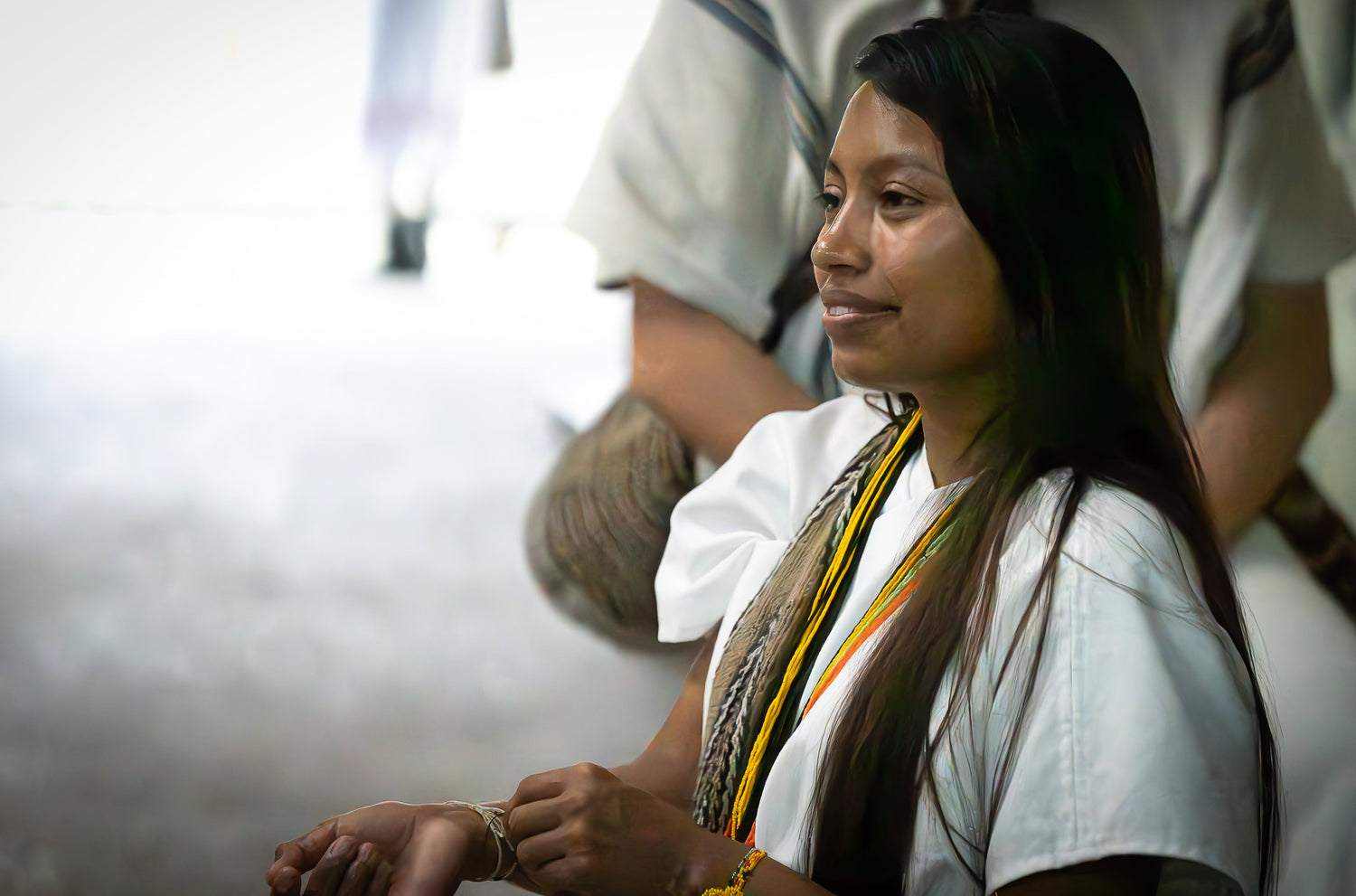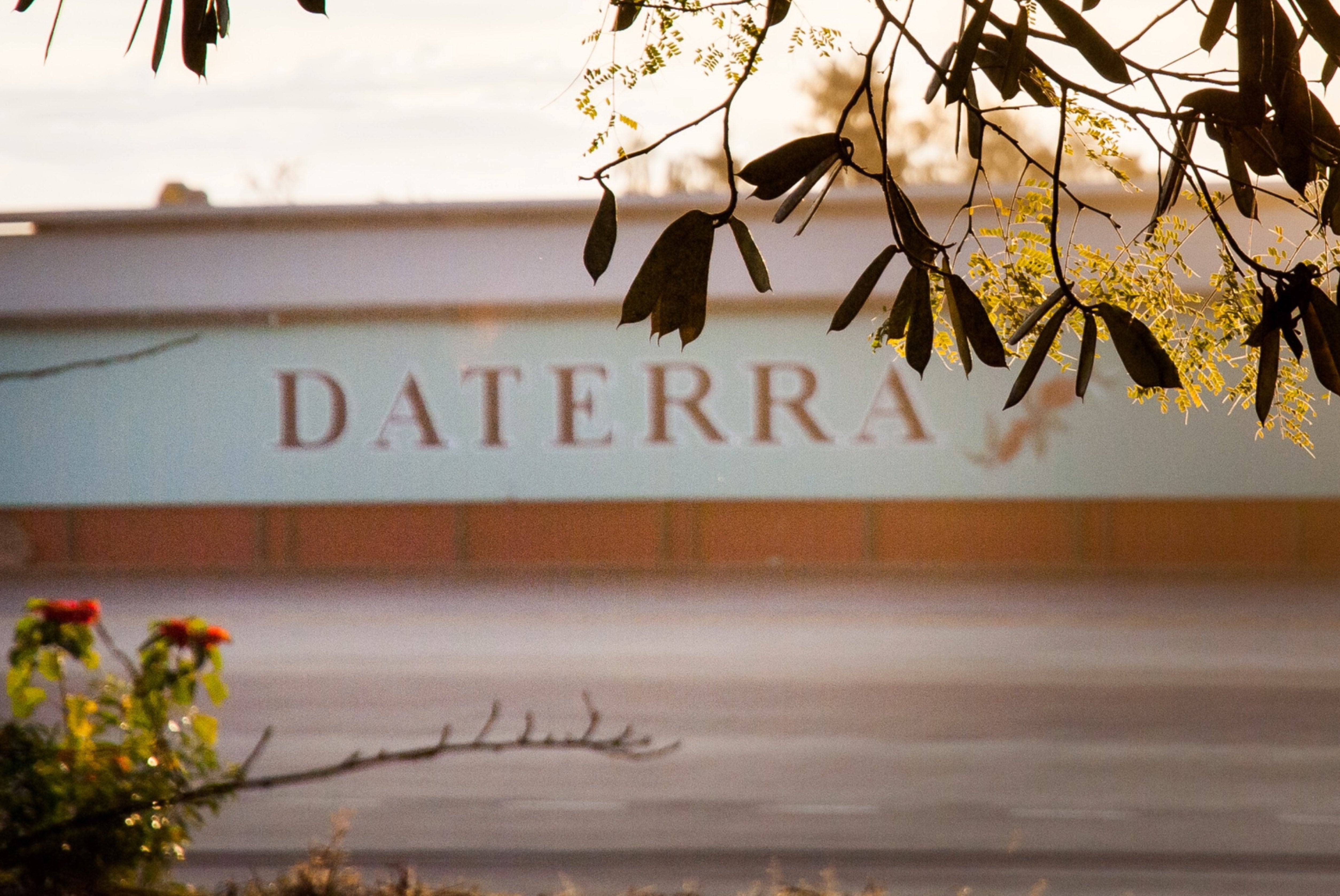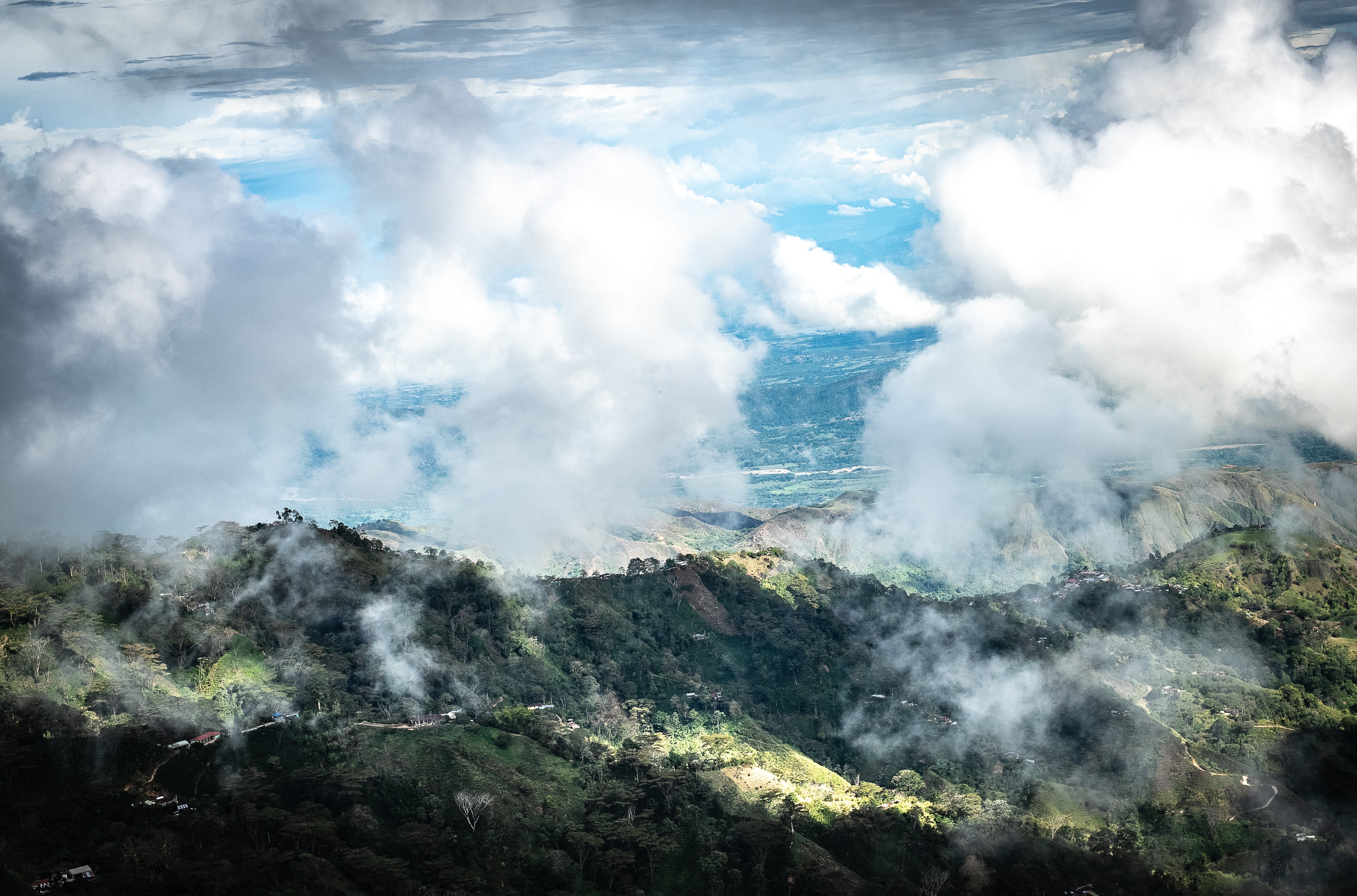For this writer mountains hold a special attraction and the need to seek out higher ground in search of coffee is one of life’s happy coincidences. Much of the coffee we love comes from South America and in my minds eye I often associate this part of the world with the Andes.
As the longest mountain range in the world the peaks of the Andes span the entire continent; gifting us with the mighty Amazon River, they’re a haven for biodiversity. For our latest South American coffee however, we venture to some lesser known mountains, separate to the Andes, magical and unique …

Sierra Nevada de Santa Marta
In north east Colombia the Sierra Nevada de Santa Marta is a very special part of the world where nature and culture intertwine. The mountains may not be as vast or high as the Andes but visiting and learning more about them takes us to a different place in the imagination, where Gabriel Garcia Marquez’s magical realism echoes in the atmosphere …
Colombia’s iconic writer may not have set his novels in the Sierra Nevada but his hometown of Aracataca sits in their shadow. The Sierra is the world’s highest coastal mountain range, their snow-capped peaks rise abruptly from the Caribbean coast and soar to an incredible 5,700 metres just 26 miles from the sea.
High up in these misty peaks the Arhuaco people are cultivating coffee as a way of preserving their environment, culture, communities and traditions.
Arhuaco and the Anei Co-operative
In 2024 I was lucky enough to visit the Arhuaco and learn how they’re using coffee to support their land, language and future.
The Arhuaco work with Anei; a co-operative founded by Aurora Izquierdo. Aurora is an inspiration; the first Arhuaco woman to attend university she has brought her people together to create a coffee supply chain owned and operated by indigenous producers.
Anei have an office in Valledupar, it’s here where I meet Aurora and other members of the co-operative, including Juan Sebastian, Aurora’s son. As well as being a Mamo - a traditional spiritual leader - Juan Sebastian plays an important role promoting Arhuaco culture.
Juan Sebastian explains that the Arhuaco see their homeland as ‘the heart of the world’ and are guided by principles in harmony with nature. They apply these values to the way they cultivate and process coffee; traditional and organic methods are used, reflecting a philosophy of respect for the Earth.

To the Heart of the World
Our onward journey from Valledupar involves a long day on roads that go from tarmac to dirt track very quickly. Bridge or no bridge, rivers are crossed. Mountains are climbed, views are incredible. Juan Sebastian explains that while we are able to drive to the mountain village where he is from, there are many settlements that can only be accessed on foot, in some cases this can be a six hour hike.
On our journey we pass through several community controlled check points. The Arhuaco are in no rush to improve access to their homes and it’s clear they have long viewed outsiders with caution. This makes sense - they have a history of resistance from colonisation, land displacement and cultural erosion: From missionaries to armed groups, miners to loggers - at various times all have threatened their environment and way of life. I felt humbled and privileged to be able to spend time travelling and staying with these people.
By the time we arrive at our destination it’s getting late, recent heavy rain fall means that the road has been partially washed away. We abandon the 4x4s and finish the journey on foot. It’s dark, the only light comes from the moon, our torches and the cooking fires. The houses in the village are circular with thatched roofs and compacted earth floors. We share an evening meal together and Juan Sebastian guides a meditation, explaining their spiritual connection with nature; rivers, forests and mountains in harmony.
In the morning the group wake with sunrise. Surrounded by the magic of the Sierra - no electricity and no mobile phone coverage but at that moment in time I couldn’t feel more connected to the World.
Over the following days we visit several farms and communities in the Sierra, learning more about how the Anei and the Arhuaco are supporting their autonomy through coffee. The co-operative represents over 700 families and their model ensures that profits from the coffee stay within the community and support education, healthcare and environmental protection.
Learn more about the coffee here






Leave a comment
This site is protected by hCaptcha and the hCaptcha Privacy Policy and Terms of Service apply.